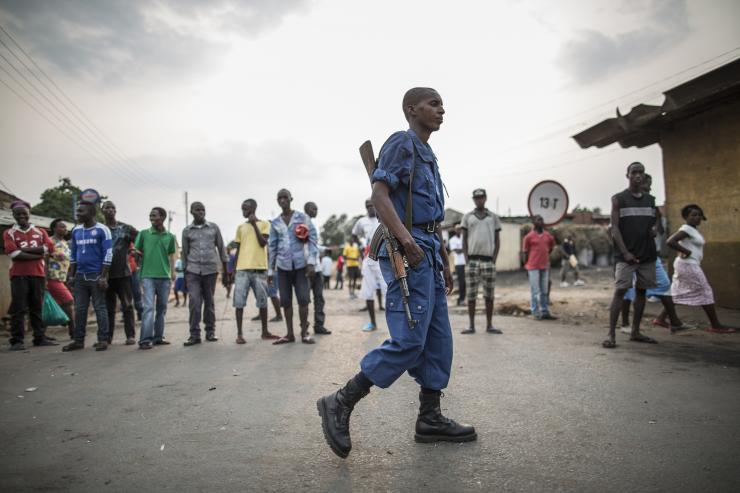-
Tips for becoming a good boxer - November 6, 2020
-
7 expert tips for making your hens night a memorable one - November 6, 2020
-
5 reasons to host your Christmas party on a cruise boat - November 6, 2020
-
What to do when you’re charged with a crime - November 6, 2020
-
Should you get one or multiple dogs? Here’s all you need to know - November 3, 2020
-
A Guide: How to Build Your Very Own Magic Mirror - February 14, 2019
-
Our Top Inspirational Baseball Stars - November 24, 2018
-
Five Tech Tools That Will Help You Turn Your Blog into a Business - November 24, 2018
-
How to Indulge on Vacation without Expanding Your Waist - November 9, 2018
-
5 Strategies for Businesses to Appeal to Today’s Increasingly Mobile-Crazed Customers - November 9, 2018
Burundi presidential elections delayed by nearly a week after UN warns over
Burundi is still in crisis after President Pierre Nkurunziza turned down calls to postpone elections in which the opposition says he is violating the constitution by presenting himself as a candidate.
Advertisement
The controversy reached a fever pitch on July 7 when Nkurinziza’s ruling party won the parliamentary elections that had been boycotted by opposition parties, suspecting the elections would not be conducted fairly. They also stayed away from parliamentary polls in June, handing Nkurunziza’s party a sweeping victory.
Presidential Spokesman Gervais Abayeho said the vote will be held July 21, six days later than originally scheduled.
Presidential polls are due on July 15 followed by senatorial elections on July 24, but the five-nation East African Community (EAC) on Monday called for elections to be delayed by two weeks, to July 30, in order to allow time for mediation. Abayeho said such a long delay “would be beyond constitutional limits”.
Under Burundi’s constitution, polls must be held at least one month before the presidential mandate expires on August 26 with Nzobanariba warning of “institutional vacuum and chaos” should it happen after that. Like the Rwandan genocide, Burundi’s civil war was fought between the Hutu majority ethnic group and the Tutsi minority who had been the leaders of the military.
Ever since Nkurunziza announced his controversial candidacy, dozens of people have been killed and 100,000 have fled in fear of political repression, seeking refuge in Rwanda, Tanzania and the Democratic Republic of Congo, according to the UN High Commissioner for Refugees. Demonstrators have regularly clashed with police. 150,000 citizens of Burundi, this is a country of just over 10 million people, have fled to neighbouring countries.
Advertisement
A general involved in a failed coup attempt in May told Reuters this week he and his comrades were still planning to oust Nkurunziza.





























